Free Walking Tours in Kyoto
Dive into Japan's ancient capital on a free walking tour in Kyoto. Home to over 2,000 temples and shrines and numerous UNESCO World Heritage Sites, Kyoto is best experienced on foot.
On these elucidating tours led by passionate guides, you'll journey through the city's major attractions and bustling districts. Unearth the rich cultural tapestry and fascinating history of Kyoto, and immerse yourself in its magic.
Dive into Japan's ancient capital on a free walking tour in Kyoto. Home to over 2,000 temples and shrines and numerous UNESCO World Heritage Sites, Kyoto is best experienced on foot.
On these elucidating tours led by passionate guides, you'll journey through the city's major attractions and bustling districts. Unearth the rich cultural tapestry and fascinating history of Kyoto, and immerse yourself in its magic.
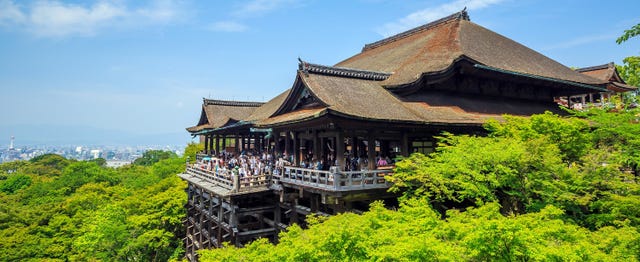
(0/24) checking Musement...
Dive into Japan's ancient capital on a free walking tour in Kyoto. Home to over 2,000 temples and shrines and numerous UNESCO World Heritage Sites, Kyoto is best experienced on foot.
On these elucidating tours led by passionate guides, you'll journey through the city's major attractions and bustling districts. Unearth the rich cultural tapestry and fascinating history of Kyoto, and immerse yourself in its magic.
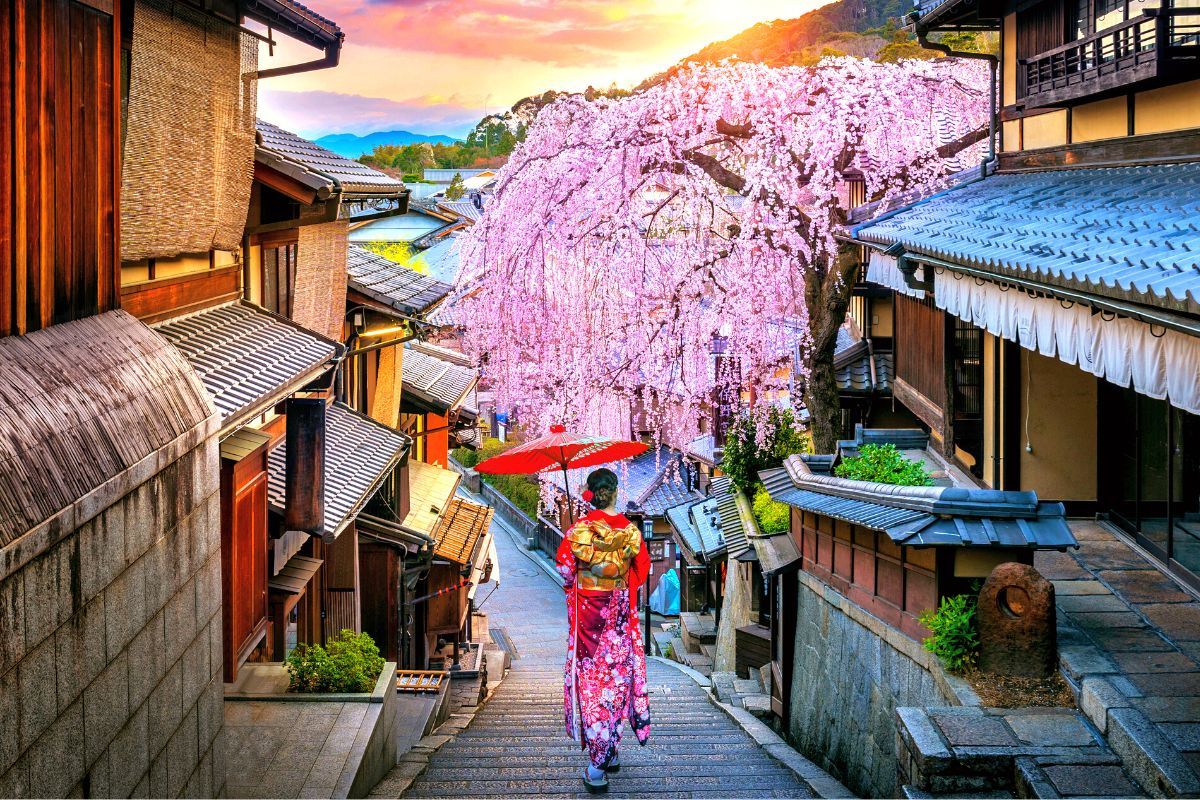
Here's all you need to know about free walking tours, one of the most captivating sightseeing tours in Kyoto.
How do free walking tours work?
Free walking tours in Kyoto offer visitors an engaging, budget-friendly way to explore the city's rich history, culture and stunning sights. These tours are led by guides who share their knowledge and love for the city, providing insights and stories about Kyoto's landmarks, traditions, and hidden gems.
Free walking tours differ from standard walking tours in Kyoto as they do not have a set price, and rather operate on a "pay-what-you-feel" basis. At the end of the tour, participants are encouraged to tip the guide based on their satisfaction with the experience. This system allows travelers with varying budgets to enjoy the tour while ensuring the guides are fairly compensated for their time and expertise.
To participate in a free walking tour, simply book your spot online. Booking in advance ensures your place on the tour and helps the organizers plan for the number of participants. Some tours may have a cap on the number of attendees to ensure a more intimate and manageable experience.
How much should you tip?
The amount you tip on a free walking tour is subjective and depends on your satisfaction with the experience, your personal budget and local tipping customs.
As a general guideline, many travelers tip between US$10 to US$15 per person. Sometimes, people may tip upwards of US$50. You can choose to tip more or less based on the quality of the tour, the guide's knowledge and your overall enjoyment.
When determining the appropriate amount to tip, consider the value you received from the tour. If you had an exceptional experience, feel free to tip more generously to show your appreciation.
What are the best free walking tours in Kyoto?
City of dreams free walking tour in Kyoto
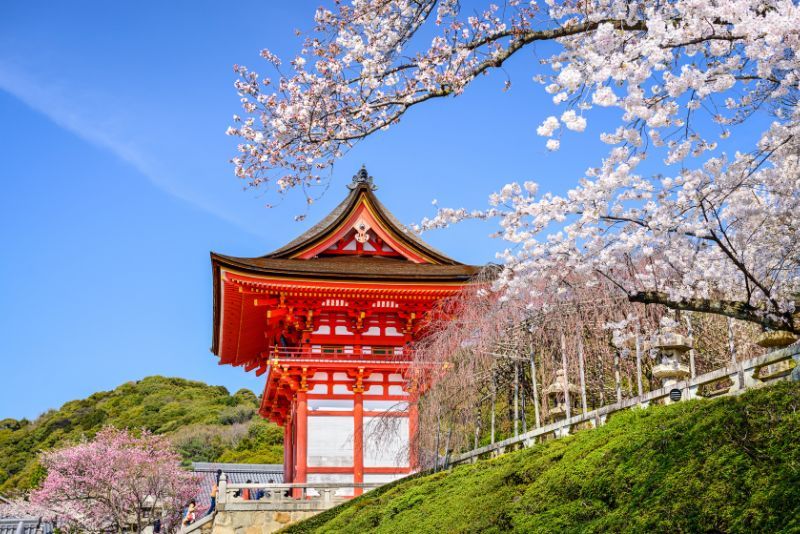
Starting from the Sanjo-Ohashi Bridge Station, this free walking tour will take you on a journey through Kyoto's history and present as you learn about the city's rise to prominence as Japan's ancient capital.
Stroll along the Kamo River before exploring the enchanting Geisha District (Gion), admiring its 150-year-old traditional wooden houses, known as Machiya. You'll then visit the prominent Chion-in Temple, delving into the history of Buddhism in Japan.
Wander through Hisashi-Yama, a historic area rich with tales of emperors and samurai warriors before concluding your journey at the iconic Kiyomizu-dera Temple, perched on the hills of Higashiyama.
This temple is a UNESCO World Heritage site known for its stunning wooden architecture and breathtaking views of Kyoto. Founded in 778, the temple features a main hall with a large veranda, supported by towering pillars, overlooking the city.
Free walking tour of Kyoto with karaoke
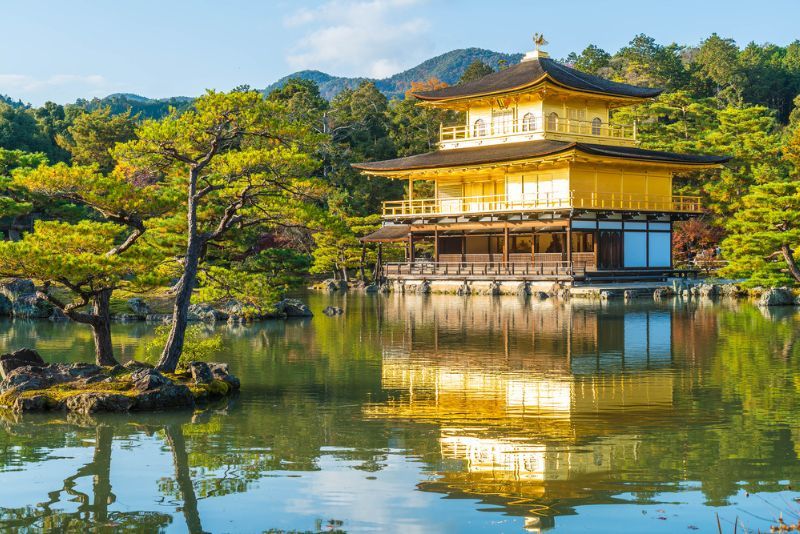
Experience the essence of Japan on this unique free walking tour in Kyoto. Visit breathtaking sites like Kiyomizu-dera and Kinkaku-ji, the stunning Golden Pavilion.
The Golden Pavilion is another UNESCO World Heritage site in Kyoto, and its top two floors are adorned with gold leaf. Originally built in 1397 as a retirement villa, it later transformed into a temple, now housing sacred relics of Buddha.
Beyond visiting these major attractions, on this walking tour you have the opportunity to engage with locals for an authentic cultural experience.
Witness the mesmerizing dance performed by apprentice geishas, known as Maiko, and top off the day by singing karaoke together in the country where it originated.
In which languages is it operated?
While Japanese is the predominant language in Kyoto, free walking tours in the city are often offered in Spanish, appealing to tourists from a wide range of countries.
Where does it start?
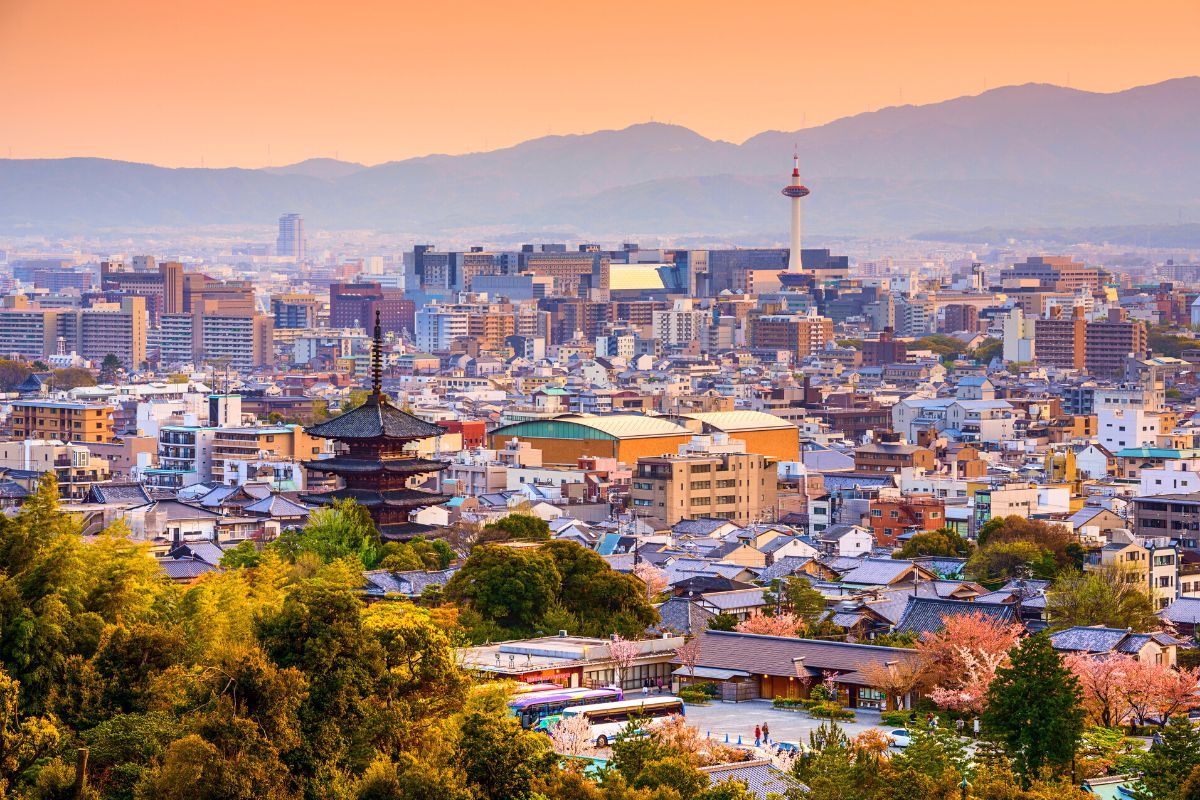
Free walking tours in Kyoto start in a central location in the city, typically at one of the major stations. You will be able to see the meeting point on the booking page, as well as details on how to identify your guide.
How long does it last?
Free walking tours in Kyoto last between 3 and 4 hours, giving you ample time to explore its numerous attractions, savor the sights and even enjoy additional activities such as a jaunt to the karaoke bar.
When is the best time to join a free walking tour in Kyoto?
The most favorable times to visit Kyoto is during spring (late March to early May) and autumn (October to November). During these periods, the weather is pleasant, and in spring the city is adorned with beautiful cherry blossoms.
Spring and autumn seasons tend to be peak tourist periods, so free walking tours may be more crowded. If you prefer a less busy time with mild weather, consider joining a walking tour in early June or late September.
Regardless of the time you choose, it's recommended to book a free walking tour in the morning or late afternoon to avoid the midday heat or crowds, ensuring a more enjoyable experience.
Should you book tickets online?
Booking free walking tours online offers several advantages that make the experience more enjoyable and hassle-free for both participants and tour organizers.
Online booking ensures your place on the tour, as they often have a limited capacity. This also helps tour organizers manage group sizes and allocate resources more effectively, ensuring a smoother, more organized experience for participants.
What other sightseeing tours can you do in Kyoto?
- Arashiyama Bamboo Forest tours in Kyoto
- Kyoto Tower tours in Kyoto
- Hop-on hop-off bus tours in Kyoto
- City tours in Kyoto
Travel tips
- Wear comfortable shoes: Since you'll be walking for a few hours, it's essential to wear comfortable and supportive footwear.
- Dress appropriately: Kyoto's weather can vary depending on the season, so check the forecast before your tour and dress accordingly. Additionally, some temples and shrines may have modesty requirements, so dress respectfully.
- Arrive early: Arrive at the designated meeting point a few minutes before the tour starts to ensure you don't miss any essential information or introductions.
- Carry cash for tipping: As free walking tours rely on tips, it's a good idea to carry enough cash in local currency to tip your guide at the end of the tour.
- Take note of recommended spots: Your guide may suggest local restaurants, shops or other attractions worth visiting. Take note of these recommendations to enhance your Kyoto experience after the tour.
